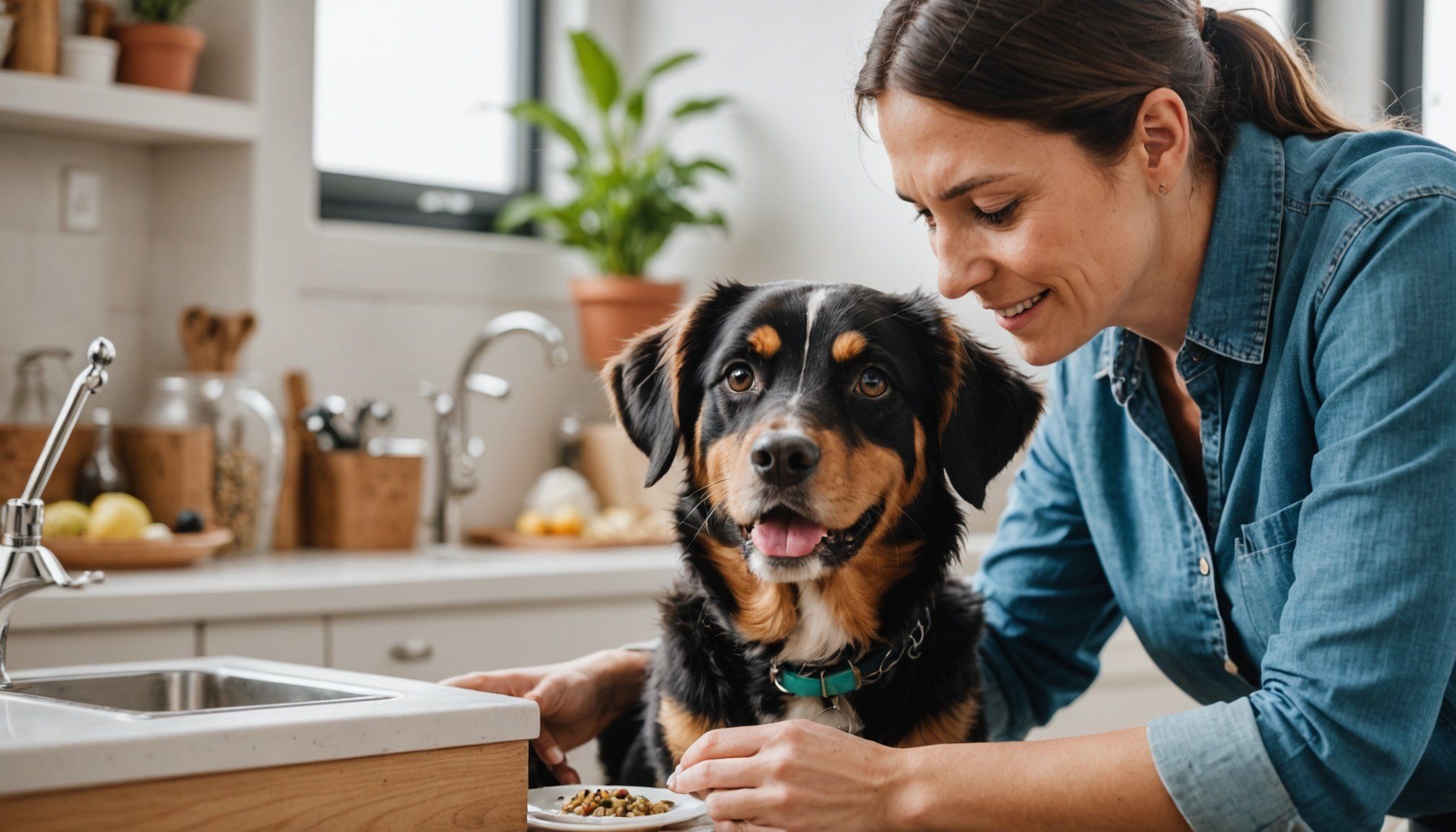Overview of Current Pet Trends
With the ever-shifting landscape of pet trends, discerning the pet care innovations shaping the industry is vital. One significant change is the alteration in pet ownership demographics. The appeal of owning a pet has expanded across various age groups and living situations, creating a rich tapestry of pet parents. This shift has been particularly notable during periods of economic uncertainty. Despite financial challenges, many individuals find comfort and companionship in adopting pets, leading to a noticeable increase in pet adoption rates.
Furthermore, the pandemic has played a role in this trend. The isolation experienced during this time catalyzed a spike in pet ownership, as animals provided much-needed emotional support. Innovations in pet care products and services have kept pace with the growing demand. From high-tech pet gadgets to subscription-based services delivering pet care essentials straight to the door, advancements cater to modern convenience and pet health needs.
Have you seen this : Top Pet Products and Their Lasting Benefits: A Comprehensive Guide
Economic changes also influence the pet industry, prompting a rise in affordable and sustainable pet products to match consumer expectations. As the industry evolves, pet owners are enlightened about innovation-driven options that align with their lifestyle and financial capability, ensuring their beloved animals thrive.
Importance of Pet Vaccinations
Ensuring your pet is vaccinated is crucial for maintaining pet health. Vaccinations help protect pets from infectious diseases by boosting their immune systems. One common misconception is that indoor pets do not require vaccinations, but they can be exposed to pathogens through open doors, windows, or human contact. Thus, adhering to vaccination schedules is vital.
Also to see : Ensuring Your Pets’ Happiness: Essential Tips for 2024 and the Future
A breakdown of essential vaccinations varies by species. For dogs, vaccines for rabies, distemper, and parvovirus are critical. Cats require vaccinations for feline leukemia, rabies, and distemper. Consultation with a veterinarian can tailor a vaccination plan to meet the needs of different pets.
Understanding the necessity of these vaccinations is a cornerstone in responsible pet ownership. While vaccination schedules can seem overwhelming, they are essential for long-term health and protection. Veterinarians often provide schedule recommendations based on pet age guidelines, ensuring timely administration to bolster immunity during critical developmental stages. Regular veterinary visits also offer opportunities for health checkups, allowing for the early detection and prevention of health issues. Prioritising your pet’s vaccination needs serves as a proactive measure, underscoring the importance of preventive care for their wellbeing. This fosters not just healthier pets, but a safer community.
Types of Vaccinations for Pets
Effective vaccination guidelines can significantly influence your pet’s health and longevity. Vaccines are categorised into core and non-core types, depending on their necessity and your pet’s lifestyle.
Core Vaccinations
Core vaccinations are essential for all pets, protecting them against widespread and severe diseases. For dogs, core vaccines include those for parvovirus, distemper, and rabies. Cats require core vaccinations against feline distemper, calicivirus, and rabies. These vaccines are vital for preventative pet health, reducing the risk of life-threatening illnesses.
Non-Core Vaccinations
Non-core vaccinations depend on factors like geographic location and pet lifestyle. For instance, dogs that frequently board in kennels may need a bordetella vaccine to protect against kennel cough. Cats allowed outdoors might benefit from a feline leukemia vaccine. Discussing your pet’s environment and activities with a veterinarian is crucial for determining the necessity of non-core vaccinations.
Vaccination Exemptions
In rare cases, vaccination exemptions are considered, especially for pets with specific health conditions. These exemptions are evaluated on a case-by-case basis and should only be under a vet’s recommendation. Despite the exemptions, maintaining a comprehensive vaccination schedule ensures robust protection and promotes overall welfare for your pet.
Vaccination Schedules for Pets
Adhering to well-planned vaccination schedules is imperative for ensuring both short-term protection and long-term pet health. Pet age guidelines play a crucial role in determining when each vaccine should be administered. Puppies and kittens require a series of vaccines every few weeks starting at about six to eight weeks of age, continuing until they are around four months old. This period is critical for strengthening their developing immune systems.
For adult pets, regular boosters are necessary to maintain immunity. The frequency can vary based on the vaccine type and the pet’s lifestyle, with most requiring boosters every one to three years. Consulting with a veterinarian allows for tailoring these schedules according to specific needs and regional health advisories.
Beyond vaccinations, regular health checkups are essential. These not only ensure vaccinations are up-to-date but also provide opportunities for early detection of potential health issues. Checkups often include physical examinations, dental reviews, and nutritional assessments, reinforcing comprehensive pet wellness.
By following vaccination schedules and engaging in routine health evaluations, pet owners can significantly enhance their pets’ quality of life and safeguard them against preventable illnesses. It is a cornerstone of responsible pet ownership, emphasizing prevention to ensure a healthy future for pets.
Navigating Pet Care in Uncertain Times
Maintaining your pet’s wellness during economic challenges can seem daunting. However, implementing effective pet care tips ensures both affordability and quality care. Prioritising regular exercise and mental stimulation caters to your pet’s physical and emotional needs, fostering happiness and good health. Simple activities like daily walks, interactive play, or puzzle feeders can provide ample enrichment without significant cost.
Amidst financial difficulties, it’s essential to identify available resources designed to assist pet owners. Many communities offer affordable or even free services such as pet food banks, low-cost veterinary clinics, and adoption agencies. Additionally, discussing costs openly with your veterinarian can unveil budget-friendly care options tailored to your pet’s specific needs.
Be proactive in routine pet maintenance, including regular check-ups and vaccinations. These measures prevent costly health issues in the future, underscoring the importance of preventive care within financial constraints. Consider leveraging technology, such as health monitoring apps or online vet consultations, to enhance convenience and efficiency in your pet care routine.
In uncertain times, informed decisions and resourcefulness can effectively navigate economic challenges while ensuring your pet’s health and wellbeing remains uncompromised. Prioritising pet wellness is feasible even when budgets are tight.
Future Predictions for Pet Ownership Trends
The pet industry is on the cusp of significant evolution, driven by future pet trends that focus on pet wellness and preventative care. As technology advances, innovations like smart collars and health monitoring apps are set to transform pet care, making it more personalised and efficient. These gadgets track health metrics and provide alerts about your pet’s wellbeing, ensuring proactive care.
The emphasis on pet wellness is expected to continue growing, with owners prioritising health and safety over convenience. This shift encourages preventive measures such as regular vaccinations and balanced diets, rather than costly treatments later. The trend towards holistic pet care signifies an understanding of the pet’s physical and emotional needs.
The relationship between pets and their owners is also evolving. Pets are increasingly regarded as family members, influencing how owners approach their responsibilities. This includes the integration of sustainable and eco-friendly practices in pet care products to match conscientious consumer habits.
As these trends unfold, they signal the pet industry’s evolution and underscore the increasing complexity of owner responsibilities. By adopting these emerging practices, pet owners can ensure they are meeting their pet’s needs both now and in the future.







